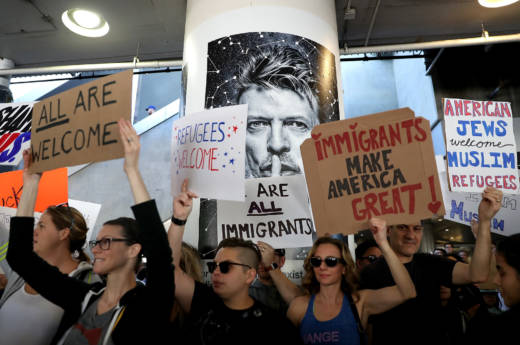These changes are set to take effect on Oct. 18, though the restrictions on Sudan will be lifted immediately, as a result of security baselines defined by the administration.
The White House said in a statement, "The President has also determined that while Iraq did not meet the baseline, entry restrictions are not warranted under the September 24 proclamation."
"Following an extensive review by the Department of Homeland Security, we are taking action today to protect the safety and security of the American people by establishing a minimum security baseline for entry into the United States," President Trump said in the statement. "We cannot afford to continue the failed policies of the past, which present an unacceptable danger to our country. My highest obligation is to ensure the safety and security of the American people, and in issuing this new travel order, I am fulfilling that sacred obligation."
The White House also hailed the proclamation as "aimed at creating — for the first time in history — minimum requirements for international cooperation to support visa and immigration vetting and adjudications for individuals seeking entry to the United States."
There are some exceptions for nationals from the eight countries who have "bona fide" connections to the U.S., though narrower than what was ordered by the Supreme Court in its temporary ruling on the travel ban. The high court will hear arguments on the merits of the travel ban on Oct. 10.
The original travel ban was signed by Trump during his first week in office and caused chaos at airports as some nationals from the seven majority-Muslim countries on the original list were caught up in the ban mid-transit. Protests also broke out at many airports.
The original countries were Iraq, Iran, Libya, Somalia, Sudan, Syria and Yemen. The first order was put on hold by a federal judge in Washington state, and that ruling was backed by an appeals court.
A second order was signed to revise the original, allowing in people from targeted countries who already held green cards and valid visas. Iraq was also removed from the ban.
A blanket ban on all refugee entry into the U.S., except for those with close family already in the country, expires on Oct. 24.
Copyright 2017 NPR. To see more, visit http://www.npr.org/2017/09/24/553353302/trump-administration-revises-travel-ban-expands-beyond-muslim-majority-countries.
9(MDAxOTAwOTE4MDEyMTkxMDAzNjczZDljZA004))

9(MDAxOTAwOTE4MDEyMTkxMDAzNjczZDljZA004))